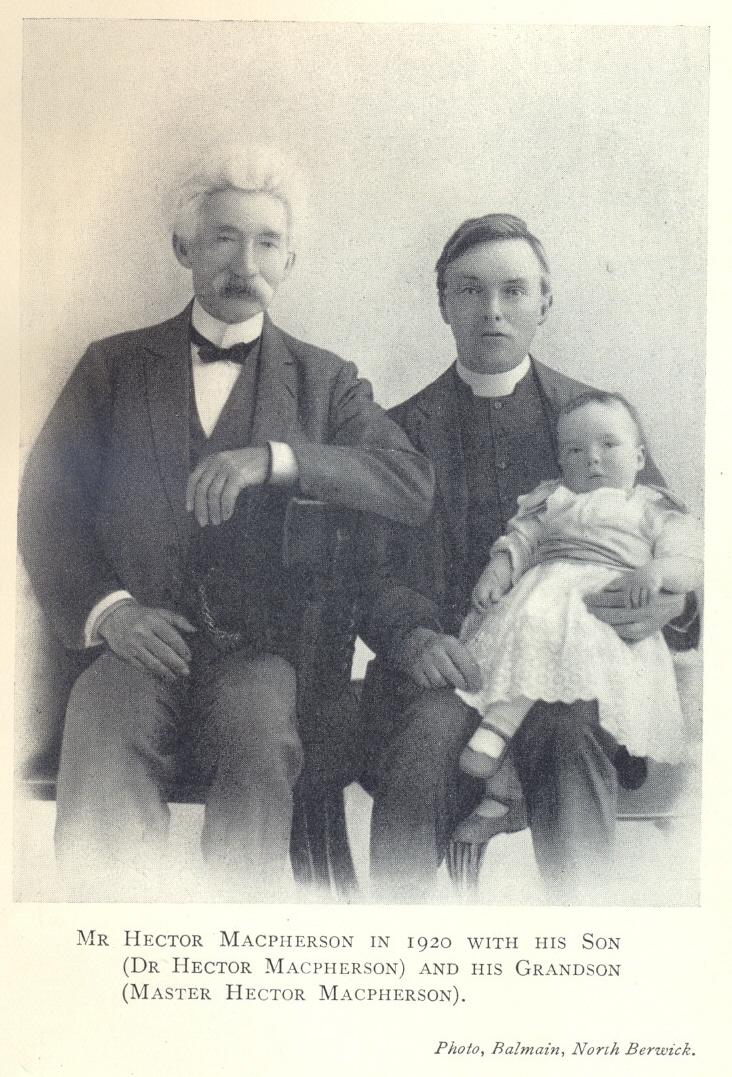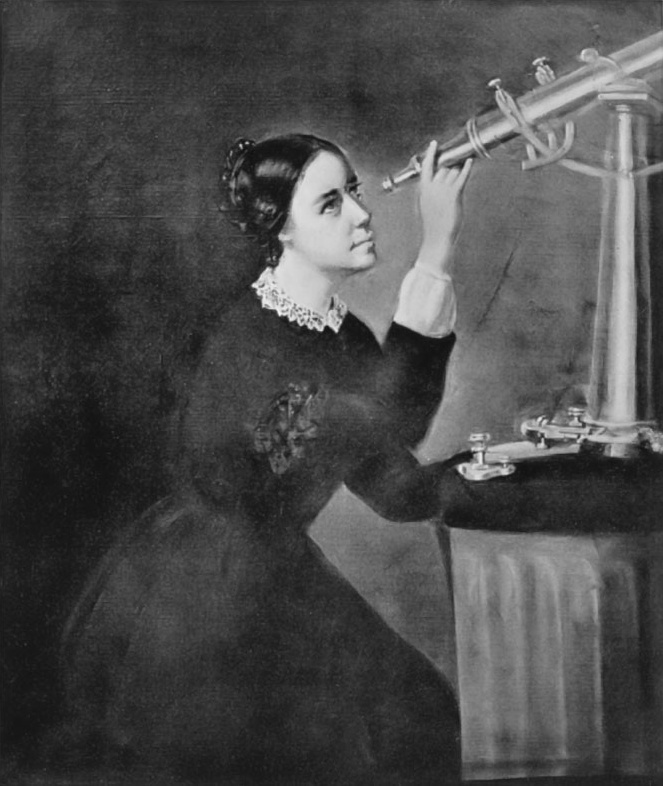|
Sarah Salmond
Sarah Salmond (7 August 1864 – 18 October 1956 in Dunedin, New Zealand) was a notable New Zealand governess and astronomer. Early life Salmond was born in Abbey St Bathans, Berwickshire, Scotland, the youngest of seven children of John Cockburn and Elizabeth Cockburn née Liddle. Cockburn was a farm labourer, and the family emigrated to New Zealand to escape poverty. They arrived in Dunedin on 4 January 1873 aboard the ''Zealandia''. Eldest son George had emigrated earlier and was farming in Cromwell, where they joined him initially, but within a year the Cockburns had moved thirty miles to Queenstown. Salmond was nine when the family arrived in Queenstown, and her two years of schooling at the local school there were her only formal education. Her schooling was cut short to run the house due to her mother's frequent absence as a local midwife. Interest in Astronomy In 1874, at age 10 years, Sarah Cockburn (who would become Sarah Salmond upon her marriage) had a passion ... [...More Info...] [...Related Items...] OR: [Wikipedia] [Google] [Baidu] |
Dunedin
Dunedin ( ; mi, Ōtepoti) is the second-largest city in the South Island of New Zealand (after Christchurch), and the principal city of the Otago region. Its name comes from , the Scottish Gaelic name for Edinburgh, the capital of Scotland. The city has a rich Scottish, Chinese and Māori heritage. With an estimated population of as of , Dunedin is both New Zealand's seventh-most populous metro and urban area. For historic, cultural and geographic reasons the city has long been considered one of New Zealand's four main centres. The urban area of Dunedin lies on the central-eastern coast of Otago, surrounding the head of Otago Harbour, and the harbour and hills around Dunedin are the remnants of an extinct volcano. The city suburbs extend out into the surrounding valleys and hills, onto the isthmus of the Otago Peninsula, and along the shores of the Otago Harbour and the Pacific Ocean. Archaeological evidence points to lengthy occupation of the area by Māori prior to the ar ... [...More Info...] [...Related Items...] OR: [Wikipedia] [Google] [Baidu] |
Hector Carsewell Macpherson
Hector Carsewell Macpherson (16 October 1851 – 17 October 1924) was a prolific Scottish writer and journalist who published books, pamphlets and articles on history, biography, politics, religion, and other subjects. Biography Early years He was born in Glasgow on 16 October 1851. As a boy, he lived with his grandparents in Alexandria, West Dunbartonshire, Alexandria, West Dunbartonshire, and when he left school at fourteen he joined his father in Glasgow. He did not settle there and when he returned to his grandparents' home, he found work in the office oDalmonach Print Works in Alexandria, West Dunbartonshire, Alexandria. Between the ages of 18 and 21, he embarked on a rigorous course of self-education using the library of the Vale of Leven Mechanics' Institute in Alexandria, West Dunbartonshire, Alexandria. He began with the study of Thomas Carlyle and passed on to John Stuart Mill, Mill, Herbert Spencer, Spencer, Matthew Arnold, Arnold and other intellectual giants. ... [...More Info...] [...Related Items...] OR: [Wikipedia] [Google] [Baidu] |
Scottish Emigrants To New Zealand
Scottish usually refers to something of, from, or related to Scotland, including: *Scottish Gaelic, a Celtic Goidelic language of the Indo-European language family native to Scotland *Scottish English *Scottish national identity, the Scottish identity and common culture *Scottish people, a nation and ethnic group native to Scotland *Scots language, a West Germanic language spoken in lowland Scotland *Symphony No. 3 (Mendelssohn), a symphony by Felix Mendelssohn known as ''the Scottish'' See also *Scotch (other) *Scotland (other) *Scots (other) *Scottian (other) *Schottische The schottische is a partnered country dance that apparently originated in Bohemia. It was popular in Victorian era ballrooms as a part of the Bohemian folk-dance craze and left its traces in folk music of countries such as Argentina ("chotis"Span ... * {{disambiguation Language and nationality disambiguation pages ca:Escocès ... [...More Info...] [...Related Items...] OR: [Wikipedia] [Google] [Baidu] |
Women Astronomers
The following is a list of astronomers, astrophysicists and other notable women who have made contributions to the field of astronomy. __NOTOC__ A * Madge Adam (1912–2001), English solar astronomer * Maggie Aderin-Pocock (born 1968), English space scientist * Conny Aerts (born 1966), Belgian astrophysicist specializing in asteroseismology * Aglaonike (c. 1st or 2nd Century BCE), ancient Greek astronomer and thaumaturge * María Luisa Aguilar Hurtado (1938–2015), Peruvian astronomer * Eva Ahnert-Rohlfs (1912–1954), German variable star astronomer * Elizabeth Alexander (1908–1958), English geologist and physicist * Leah Allen (1884–1973), American astronomer and educator * Adelaide Ames (1900 - 1932), American astronomer * Anja Cetti Andersen (born 1965), Danish astronomer focused on cosmic dust * Necia H. Apfel (born 1930), American astronomer and educator * Alice Archenhold (1874–1943), German astronomer * Anne Archibald, Canadian astronomer and educator B ... [...More Info...] [...Related Items...] OR: [Wikipedia] [Google] [Baidu] |
1956 Deaths
Events January * January 1 – The Anglo-Egyptian Sudan, Anglo-Egyptian Condominium ends in Sudan. * January 8 – Operation Auca: Five U.S. evangelical Christian Missionary, missionaries, Nate Saint, Roger Youderian, Ed McCully, Jim Elliot and Pete Fleming, are killed for trespassing by the Huaorani people of Ecuador, shortly after making contact with them. * January 16 – Egyptian leader Gamal Abdel Nasser vows to reconquer Palestine (region), Palestine. * January 25–January 26, 26 – Finnish troops reoccupy Porkkala, after Soviet Union, Soviet troops vacate its military base. Civilians can return February 4. * January 26 – The 1956 Winter Olympics open in Cortina d'Ampezzo, Italy. February * February 11 – British Espionage, spies Guy Burgess and Donald Maclean (spy), Donald Maclean resurface in the Soviet Union, after being missing for 5 years. * February 14–February 25, 25 – The 20th Congress of the Communist Party of the Soviet Union is held in Mosc ... [...More Info...] [...Related Items...] OR: [Wikipedia] [Google] [Baidu] |
1864 Births
Events January–March * January 13 – American songwriter Stephen Foster ("Oh! Susanna", "Old Folks at Home") dies aged 37 in New York City, leaving a scrap of paper reading "Dear friends and gentle hearts". His parlor song " Beautiful Dreamer" is published in March. * January 16 – Denmark rejects an Austrian-Prussian ultimatum to repeal the Danish Constitution, which says that Schleswig-Holstein is part of Denmark. * January 21 – New Zealand Wars: The Tauranga campaign begins. * February – John Wisden publishes '' The Cricketer's Almanack for the year 1864'' in England; it will go on to become the major annual cricket reference publication. * February 1 – Danish-Prussian War (Second Schleswig War): 57,000 Austrian and Prussian troops cross the Eider River into Denmark. * February 15 – Heineken brewery founded in Netherlands. * February 17 – American Civil War: The tiny Confederate hand-propelled submarine ''H. L. Hunl ... [...More Info...] [...Related Items...] OR: [Wikipedia] [Google] [Baidu] |
James David Salmond
James David Salmond (1 May 1898 – 1 April 1976) was a notable New Zealand teacher, Presbyterian minister and religious educationalist. He was born in Queenstown, New Zealand, in 1898. His mother was amateur astronomer Sarah Salmond. In the 1962 Queen's Birthday Honours, Salmond was appointed an Officer of the Order of the British Empire The Most Excellent Order of the British Empire is a British order of chivalry, rewarding contributions to the arts and sciences, work with charitable and welfare organisations, and public service outside the civil service. It was established o ..., for services to the community, especially in connection with youth work and Christian education for the Presbyterian Church. References 1898 births 1976 deaths New Zealand Presbyterians New Zealand schoolteachers People from Queenstown, New Zealand People educated at Gore High School New Zealand Officers of the Order of the British Empire {{NewZealand-bio-stub ... [...More Info...] [...Related Items...] OR: [Wikipedia] [Google] [Baidu] |
Torphichen
Torphichen ( ) is a historic small village located north of Bathgate in West Lothian, Scotland. The village is approximately 18 miles (20 km) west of Edinburgh, 7 miles (11 km) south-east of Falkirk and 4 miles (6 km) south-west of Linlithgow. The village had a population of 570 in the ( 2011 Census) and a population of 710 in 2016. Torphichen's placename may be Gaelic in origin, e.g., "Tóir Féichín" (the boundary/sanctuary of St Féichín), Tor Fithichean (Hill of the Ravens), or Brythonic "tref fechan" (little town). History The village (parish) church is said to have been founded by St. Ninian in about 400AD, a small wooden structure on the site of the present church (itself rebuilt in 1756). By the medieval period, the church and area had continued to develop and in 1165, the Knights Hospitaller of St. John made their Scottish headquarters at Torphichen and the Preceptory stands as testament to their presence. By 1756, part of the old structure of the Preceptory was alte ... [...More Info...] [...Related Items...] OR: [Wikipedia] [Google] [Baidu] |
New Zealand
New Zealand ( mi, Aotearoa ) is an island country in the southwestern Pacific Ocean. It consists of two main landmasses—the North Island () and the South Island ()—and over 700 smaller islands. It is the sixth-largest island country by area, covering . New Zealand is about east of Australia across the Tasman Sea and south of the islands of New Caledonia, Fiji, and Tonga. The country's varied topography and sharp mountain peaks, including the Southern Alps, owe much to tectonic uplift and volcanic eruptions. New Zealand's capital city is Wellington, and its most populous city is Auckland. The islands of New Zealand were the last large habitable land to be settled by humans. Between about 1280 and 1350, Polynesians began to settle in the islands and then developed a distinctive Māori culture. In 1642, the Dutch explorer Abel Tasman became the first European to sight and record New Zealand. In 1840, representatives of the United Kingdom and Māori chiefs ... [...More Info...] [...Related Items...] OR: [Wikipedia] [Google] [Baidu] |
Rees River
The Rees River (Māori language: ''Puahiri'' or ''Puahere'') is a headwater tributary of the Clutha River / Mata-Au that drains eastward of the main divide of the Southern Alps / Kā Tiritiri o te Moana in New Zealand. The river runs 41 km, drains an area of 406 km2, and discharges into the head of Lake Wakatipu at Glenorchy. Bound by the Richardson (''Whakaari'') Mountains to the east and the Forbes Mountains to the west, its snow-covered headwaters rise above 2000 m. The upper parts of the Rees River occupy a formerly glaciated valley that was fed by the Tyndall Glacier, which now drains into the adjacent Dart Valley. Below Rees Saddle the river valley is constrained by a series of steep alluvial fans that are fed from tributary basins. The lithology of the Rees catchment is highly erodible schist of the Aspiring lithologic association. The underlying schist is highly fissive due to its fine-grain, segregated quart-feldspar-mica composition.McSaveney, M.J., Glassey ... [...More Info...] [...Related Items...] OR: [Wikipedia] [Google] [Baidu] |
Christian Heinrich Friedrich Peters
Christian Heinrich Friedrich Peters (September 19, 1813 – July 18, 1890) was a German–American university teacher and astronomer at the Litchfield Observatory of Hamilton College, New York, and a pioneer in the study and visual discovery of asteroids. His name is often given as . Biography He was born in Koldenbüttel in Schleswig, then part of Denmark but later part of Germany, and later studied under Carl Friedrich Gauss. His younger brother was the German explorer Wilhelm Peters. Peters spoke many languages and gravitated to Italy at the time of the Italian unification. His association with radical groups brought him to the attention of authorities, and he fled to the Ottoman Empire, where he became a government advisor. At the suggestion of the resident U.S. consul, he emigrated to the United States in 1854. In 1874, Peters headed a United States Naval Observatory expedition to Queenstown, New Zealand, to observe the Transit of Venus. The visit is marked with a pla ... [...More Info...] [...Related Items...] OR: [Wikipedia] [Google] [Baidu] |





